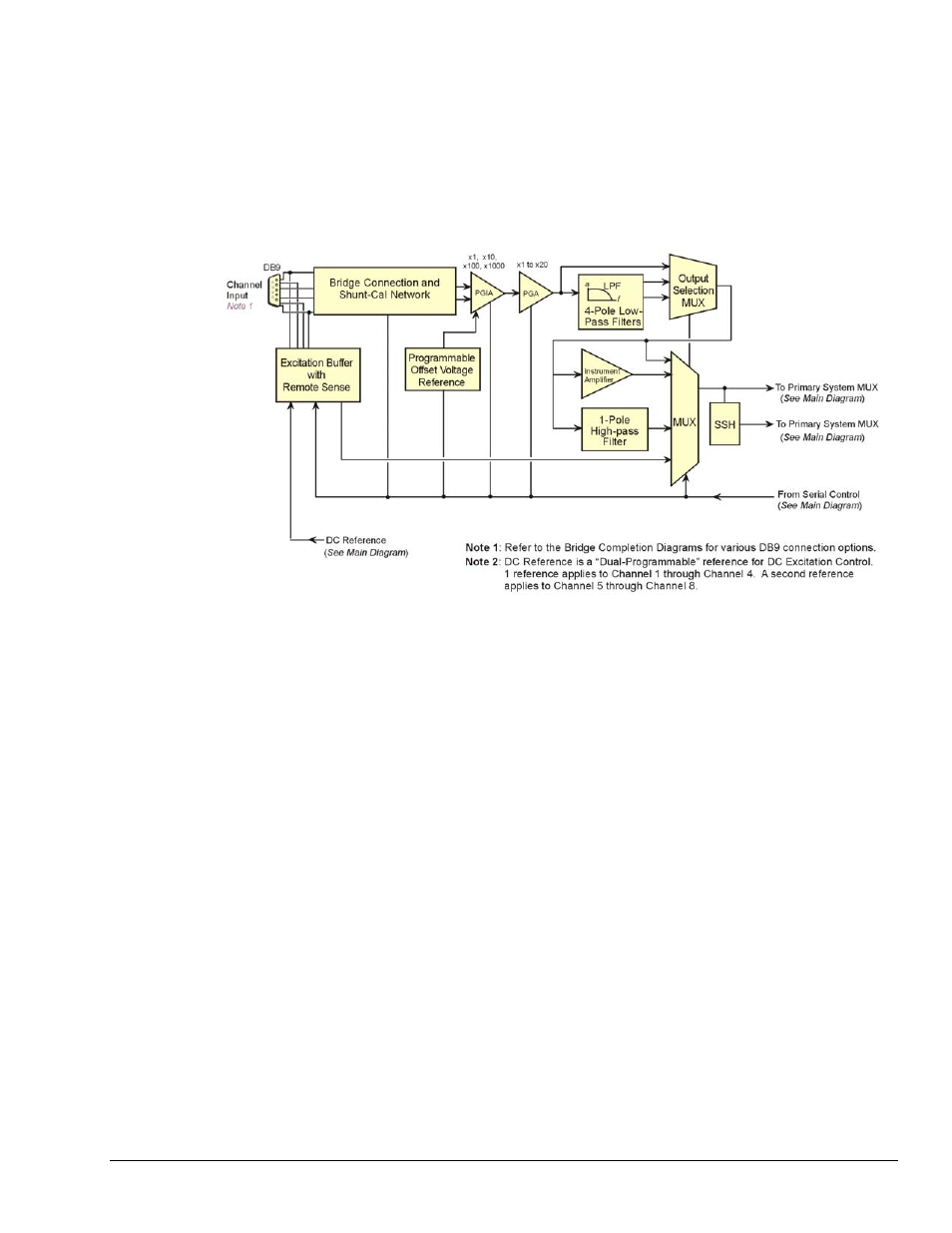Measurement Computing StrainBook/616 User Manual
Page 17

Signal Conditioning, per Channel
StrainBook/616 includes signal-conditioning circuitry (following figure) for eight channels. In addition, up
to seven WBK16 strain gage modules can be added to a single StrainBook/616. This results in a system of
up to 64 channels, scanned at 1 µs/channel.
Almost all bridge configurations are supported via a bridge-completion network and software. High-gain
differential-amplifier applications are also supported. Software is used to control bridge configuration,
gain, offset, excitation voltage, polarity, filtering, and the calibration process.
Each Input Channel has a Dedicated Signal Conditioning Circuit
Channel Selection
The eight independent, signal-conditioned channel signals are routed to the Channel Selection MUX
(multiplexer) for output through the Analog Expansion Interface (see main block diagram). Another
interface, the Expansion Control Interface, controls the channel-scanning process and allows digital
configuration of all channels through the Serial Control Bus.
Dual-Programmable DC Reference and Excitation
Excitation power is programmable from a dual source. Channels 1 through 4 have a common source (Bank
1 DC Reference). Channels 5 through 8 use a second source (Bank 2 DC Reference). Each channel has a
separate regulator with a fold-back current limiter. Up to 85 mA is provided at 10 V out, decreasing to
30 mA when shorted. This is sufficient current to operate 120 Ω gages at any voltage. Programmable
output voltages of 0, 0.5, 1, 2, 5, and 10 volts are available. Remote-sense inputs are provided and should
be connected at the strain gage for best accuracy. If they are not used, they need to be jumpered to the
excitation output at the connector. The remote-sense inputs are fully differential, and may even be
connected across the completion resistor to form a constant-current linearized quarter-bridge configuration.
StrainBook/616
967794
Operation Reference 2-3
